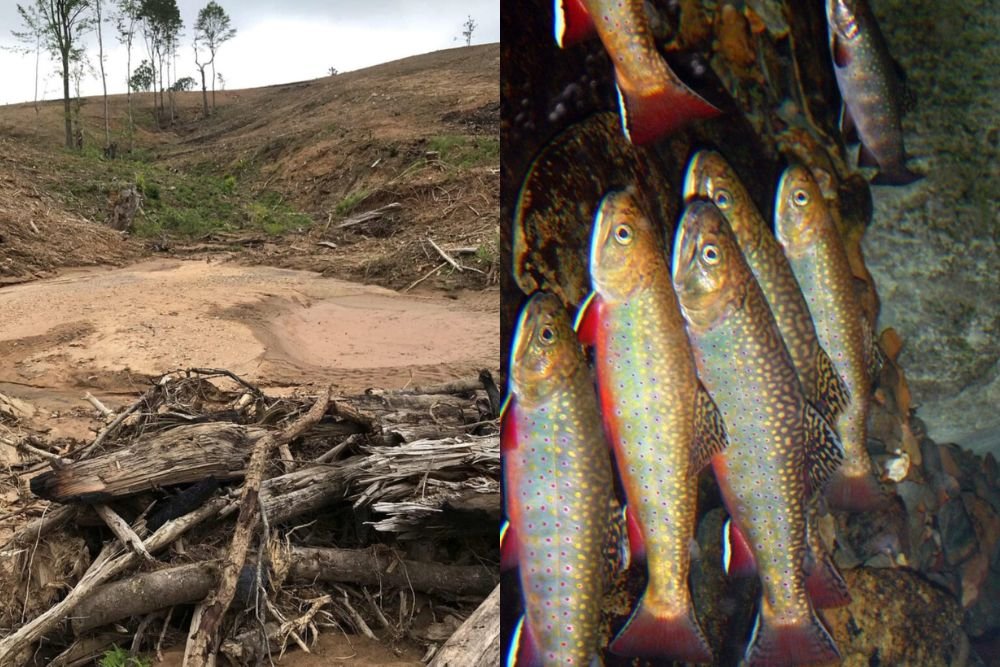NC Cattle Farmer Fined $92,000 Over Damage to Mountain Streams
ALLEGHANY COUNTY, N.C. — A North Carolina cattle farming operation has agreed to pay $92,500 after state regulators said its clear-cutting and grazing practices damaged more than three miles of mountain streams, forcing wildlife officials to rescue a fragile brook trout population.
Settlement Reached After Years of Litigation
The North Carolina Department of Environmental Quality (DEQ) announced the Sept. 4 settlement with Bottomley Properties, a large farming enterprise spanning North Carolina and Virginia. The agreement reduced an original $263,000 penalty — one of the largest ever assessed by DEQ — to $92,500, payable over four years. Neither the state nor the company admitted wrongdoing in the settlement.
The case had been tied up in years of appeals, with Bottomley arguing regulators had exaggerated the damage.
Brook Trout Threatened by Sediment
Wildlife officials described the violations as among the most extensive sedimentation damage they had ever seen. Inspections revealed 1 to 3 inches of dirt in a stream feeding Ramey Creek, a waterway classified as high-quality trout habitat. Later storms washed up to 2 feet of sediment into five streams and two wetlands.
The erosion devastated populations of the Southern Appalachian brook trout, a small native fish already stressed by climate change. Wildlife Resources Commission staff relocated as many fish as possible, but in less than two years, their numbers in the affected creek dropped from 20 to zero.
Farming Practices Under Scrutiny
Bottomley’s operations include 17,000 beef cattle and extensive crop production across more than 55,000 acres. In 2020, the company clear-cut 360 acres of mountain forest for cattle grazing, cutting directly to stream banks instead of maintaining vegetative buffers. Inspectors also documented fecal bacteria levels in one stream six times higher than state freshwater standards.
Environmental advocates said the case underscores the importance of enforcing water quality protections. Blue Ridge Trout Unlimited praised the outcome, noting that Bottomley’s aggressive legal defense could have weakened future safeguards if successful.
Pattern of Violations
The Bottomley family has a history of environmental citations. A related operation, Glade Creek Dairy, was fined multiple times between 2003 and 2016 for manure management and waste discharges. Critics argue the latest case highlights long-standing tensions between large-scale agriculture and environmental regulation in North Carolina.
Do you think state penalties like this are enough to deter future environmental damage by large farming operations? Share your opinion at SaludaStandard-Sentinel.com.







